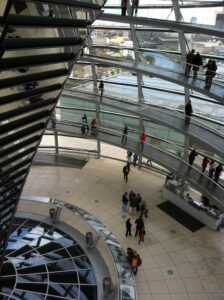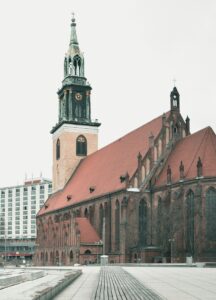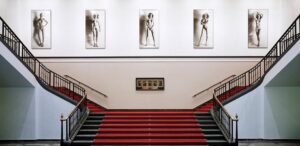At its heart, the Deutsche Oper Berlin is a place of belonging. Since opening in 1912 with the premiere of Beethoven’s Fidelio, this institution has invited Berliners and visitors alike to immerse themselves in music, drama, and to those who are sensitive to such things, to their shared humanity. From the creative energy of the 1920s Weimar Era, through the destruction of war, and later as a beacon for West Berlin during the Cold War, the opera has remained a place where people come together and find their stories reflected on stage.
This sense of connection carries into the rest of the 2025-26 season. Starting with «Opera Days» on 13 and 18 September, the house invites you to sample four stirring acts from Hänsel und Gretel, Rigoletto, La Traviata and Turandot, a compact preview of the power of opera to unite and delight. This is followed by full productions such as Aida beginning 13 September, Carmen in October, and Andrea Chénier in December, each rich with passion, moral tensions, and opportunity to reflect on our own stories. In November, Simon Boccanegra, Verdi’s meditation on power, legacy and reconciliation, invites us to consider what binds us across generations.
An exhibition titled Scandal! runs from October, tracing the opera house’s history as a stage for artistic controversies since 1945. These stories of resistance, protest, and bold change echo Berlin’s restless spirit. It is a reminder that belonging is not only comfort but sometimes the courageous act of standing for art, for history, for each other.
What makes this Berlin opera house distinctive is the way it connects the stage to the lives of its audiences. Attending opera in Berlin is to be a part of a living dialogue between people, between artists and their listeners, between tradition and modernity. To sit in the hall of the Deutsche Oper Berlin is to feel that dialogue continuing, a reminder that music here has never been a mere luxury, but part of a living, and on-going conversation.
Amid all this, consider the quietly remarkable figure of Dr Alard von Rohr. Arriving in the early 1980s, he became a key collaborator behind the scenes, helping launch the opera’s patronage association and co-founding its AIDS Gala in 1994. His sudden passing this year reminds us that institutions are shaped by individuals whose devotion, often unseen, helps keep the music ringing and the community connected.
At Deutsche Oper Berlin, as in good art anywhere, you’re invited to see yourself in the music and in the performances and to reflect on just how many have done the same in this place before you. For anyone curious about opera in Berlin, or searching for a cultural experience that feels both timeless and deeply human, this is where the city’s heartbeat can still be heard.




